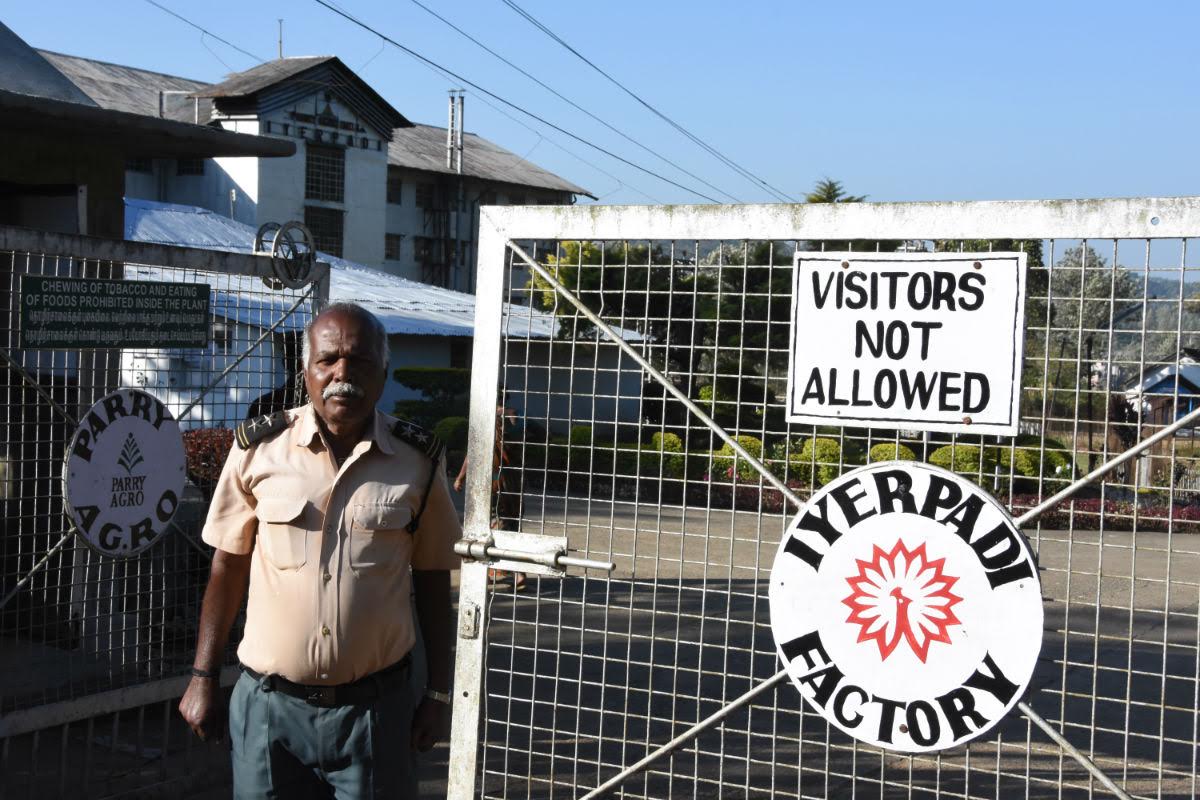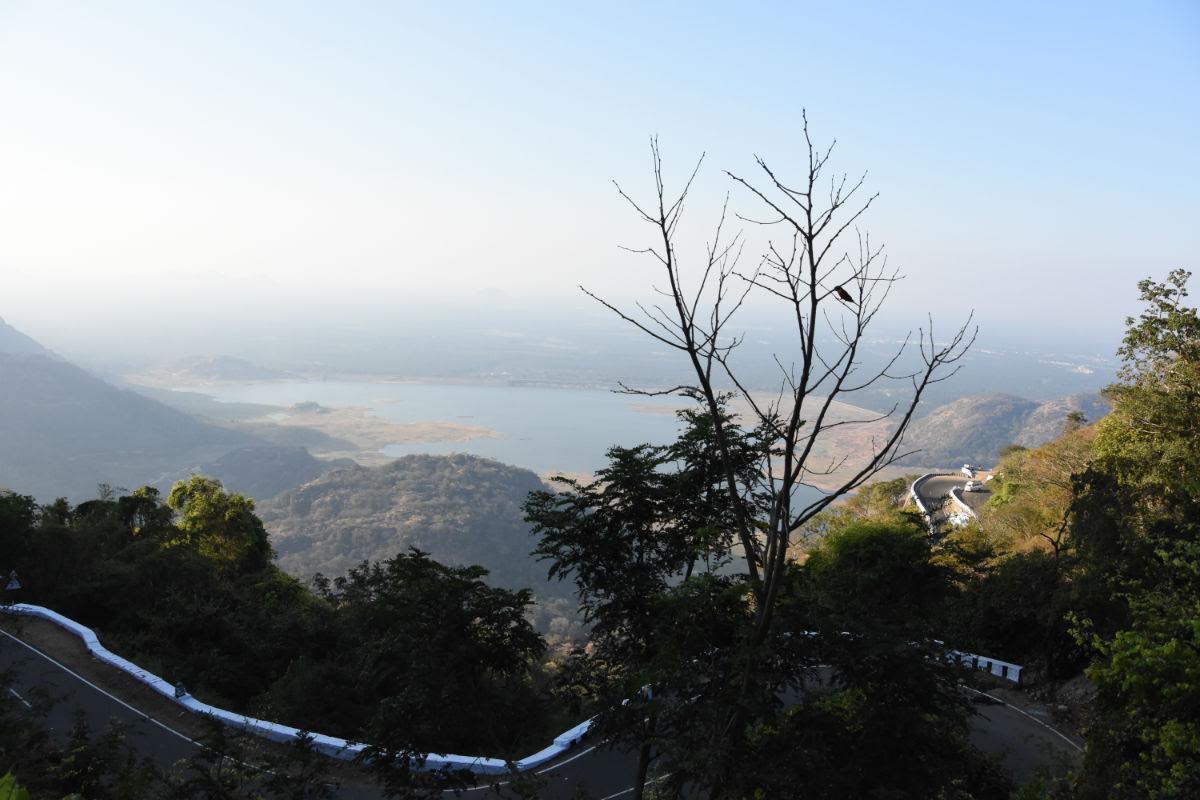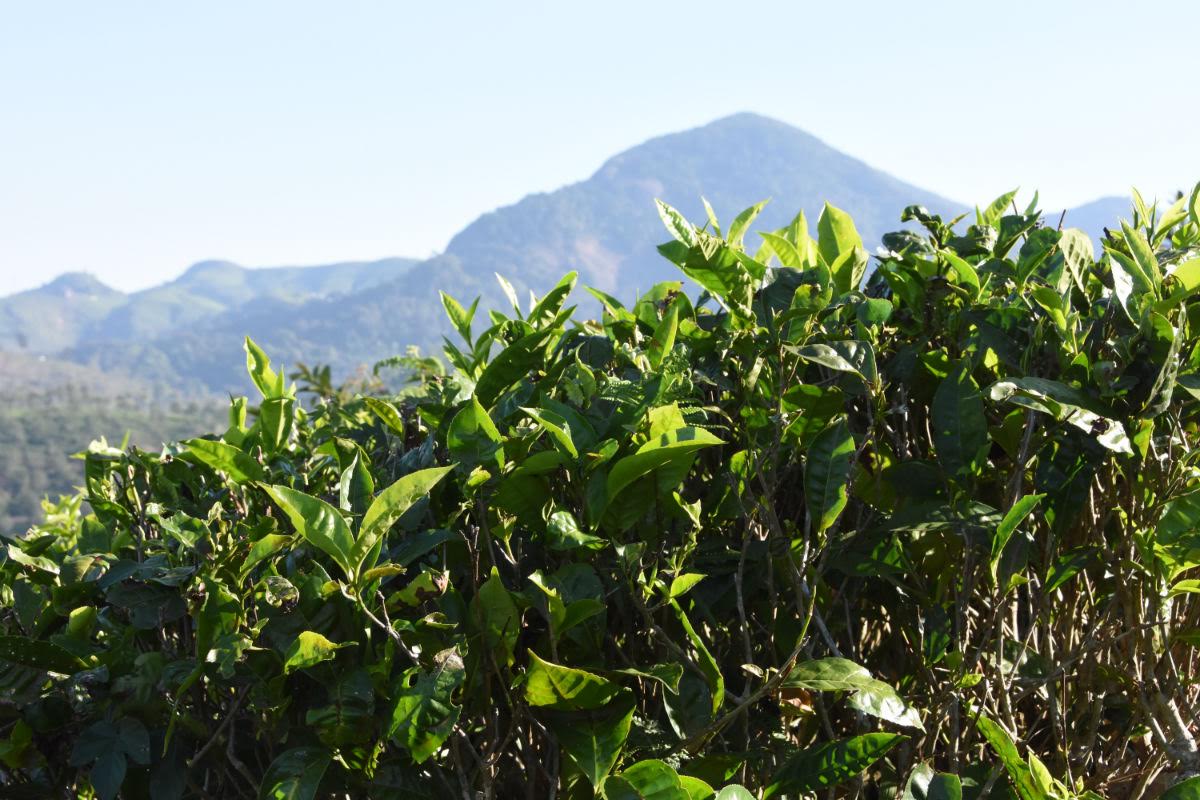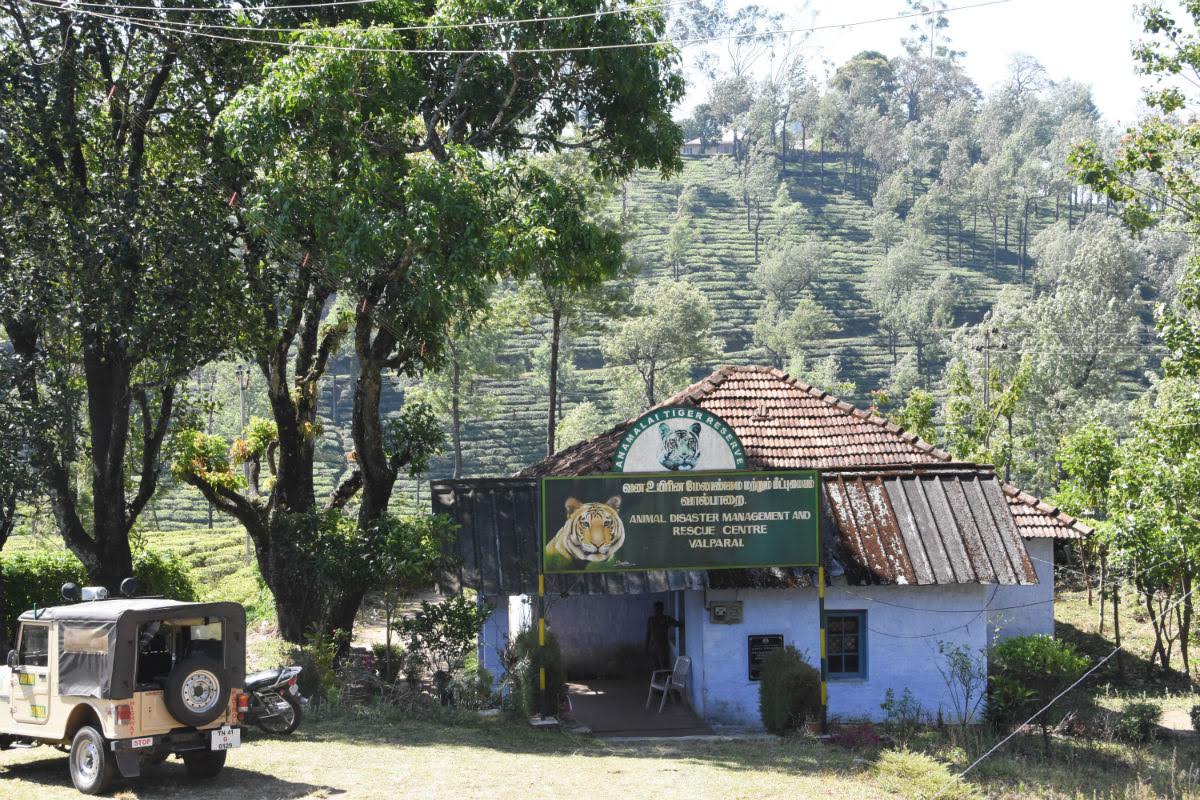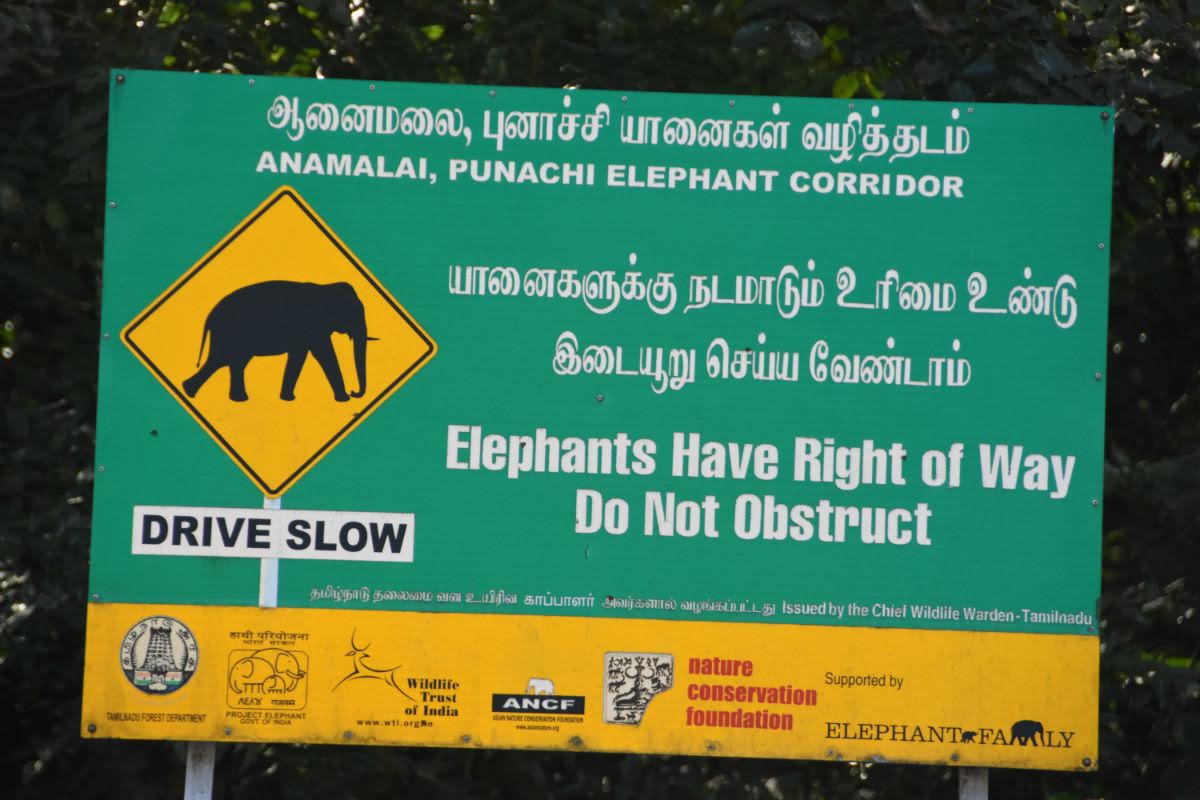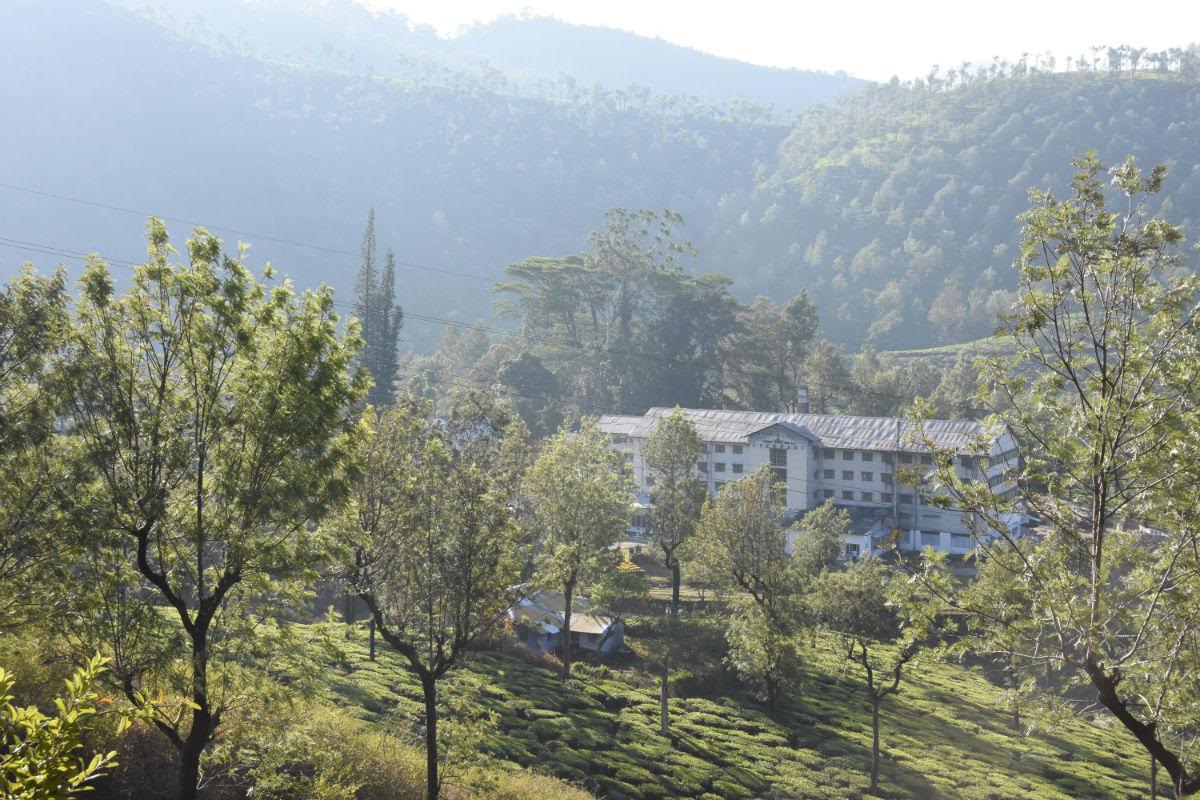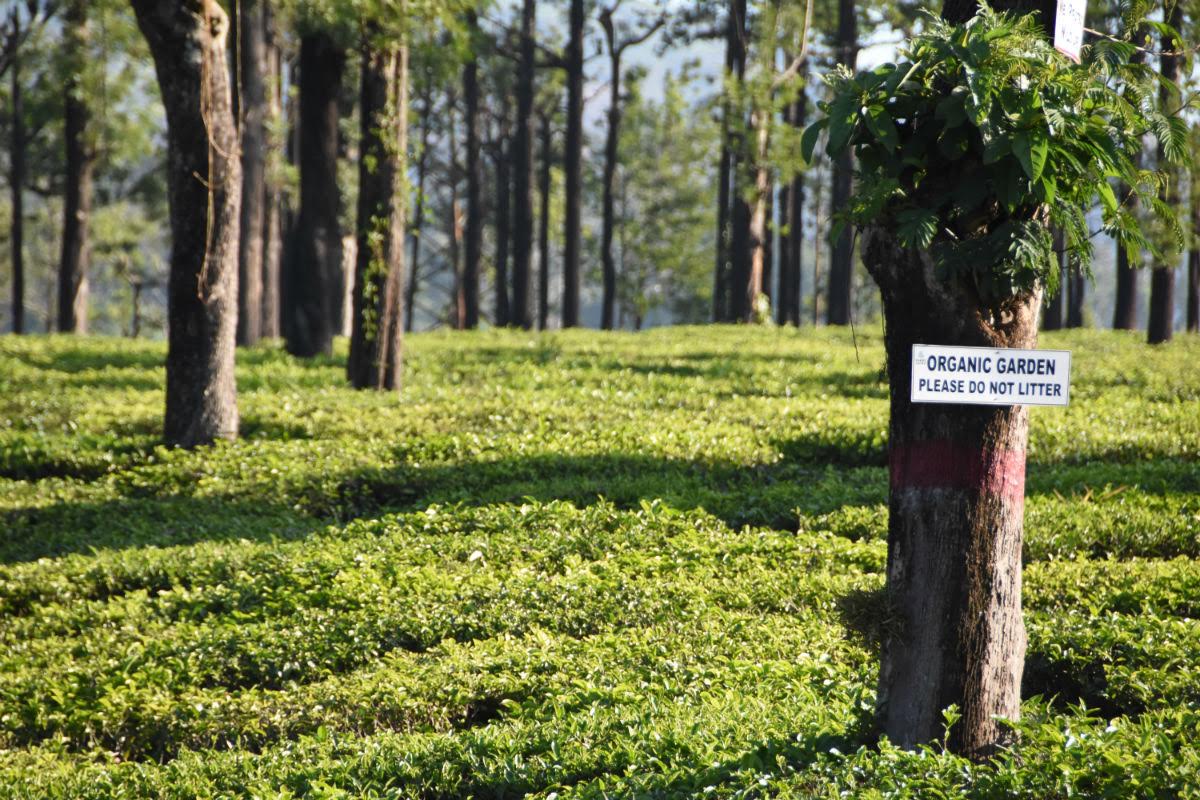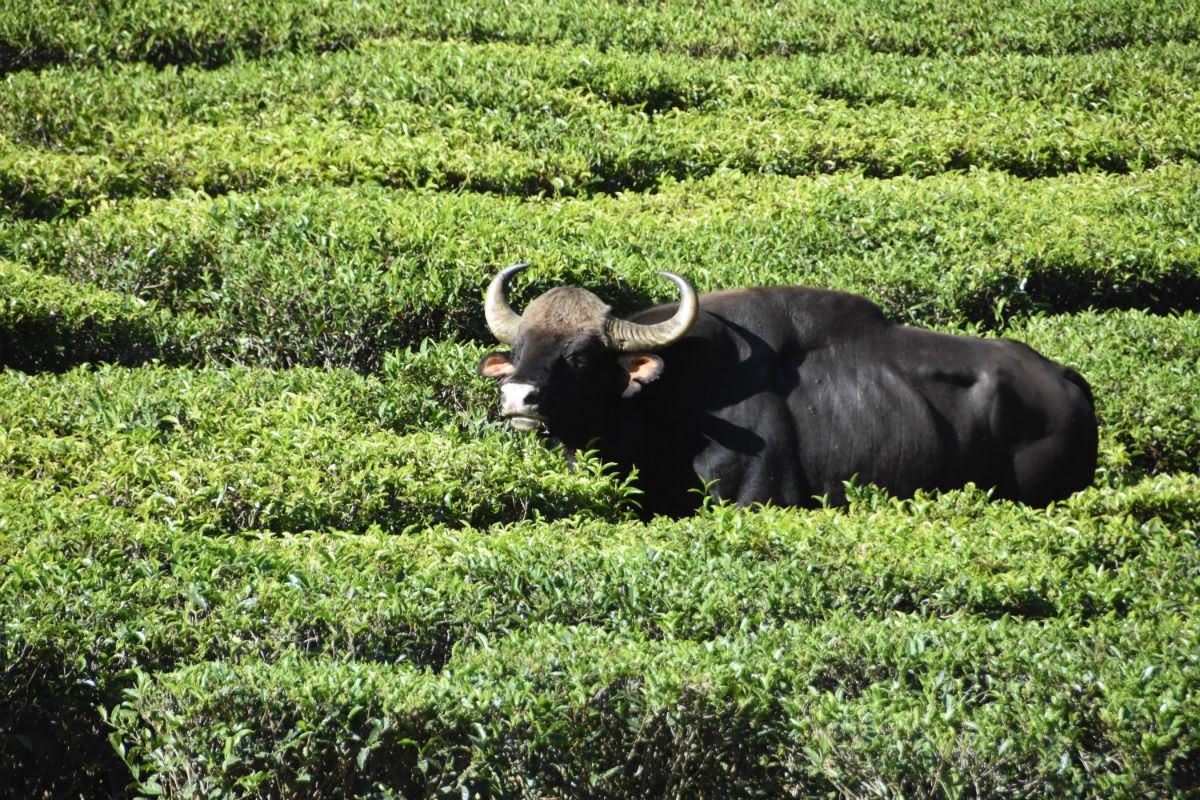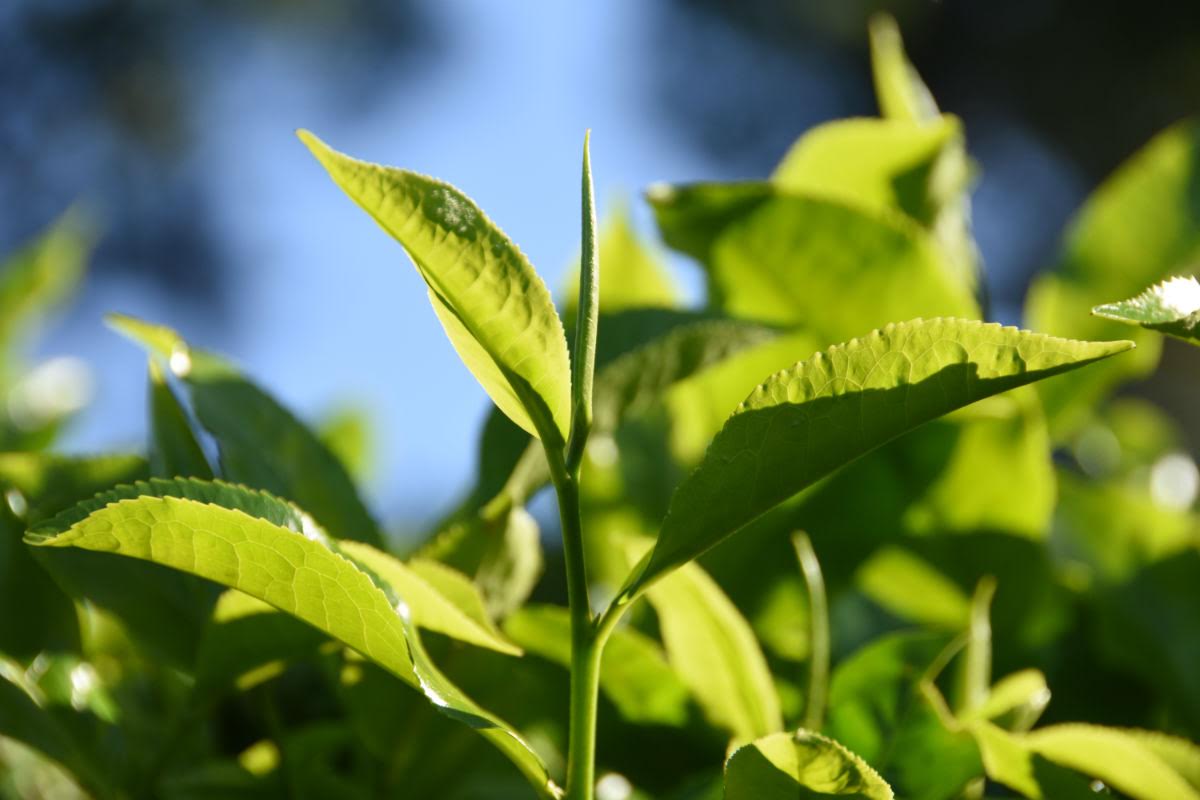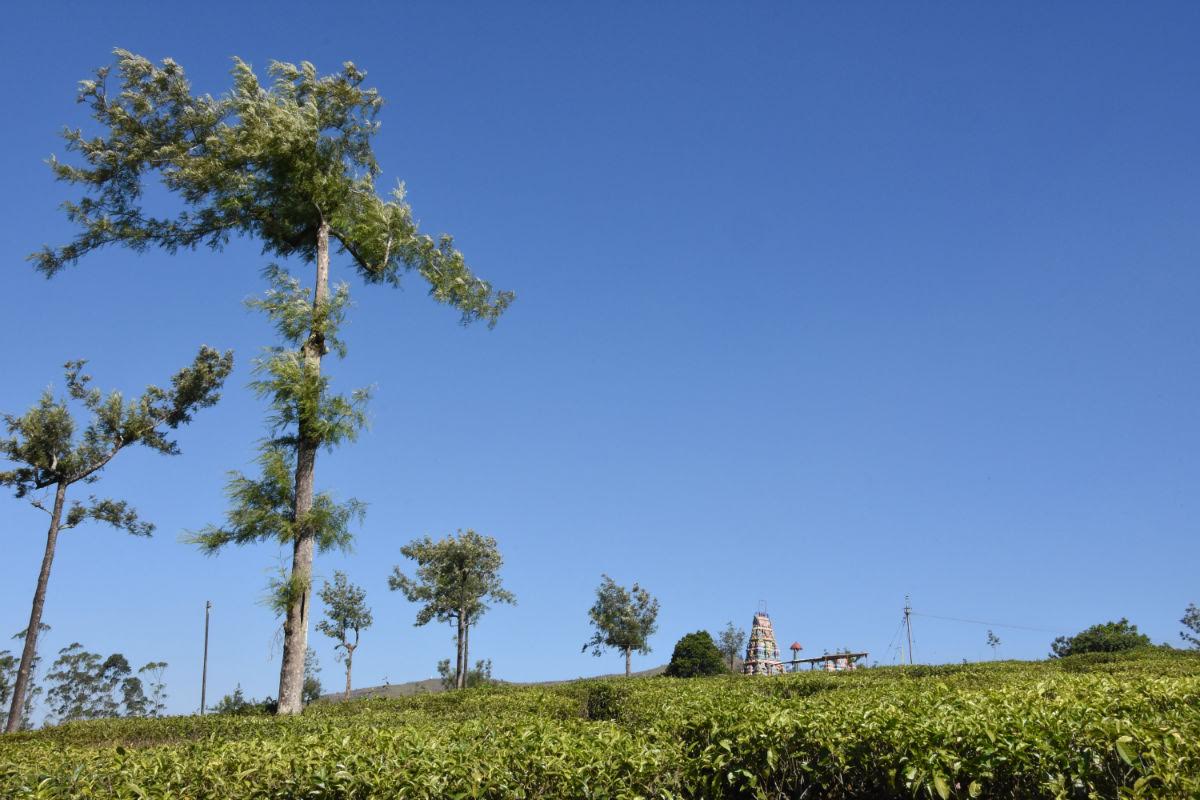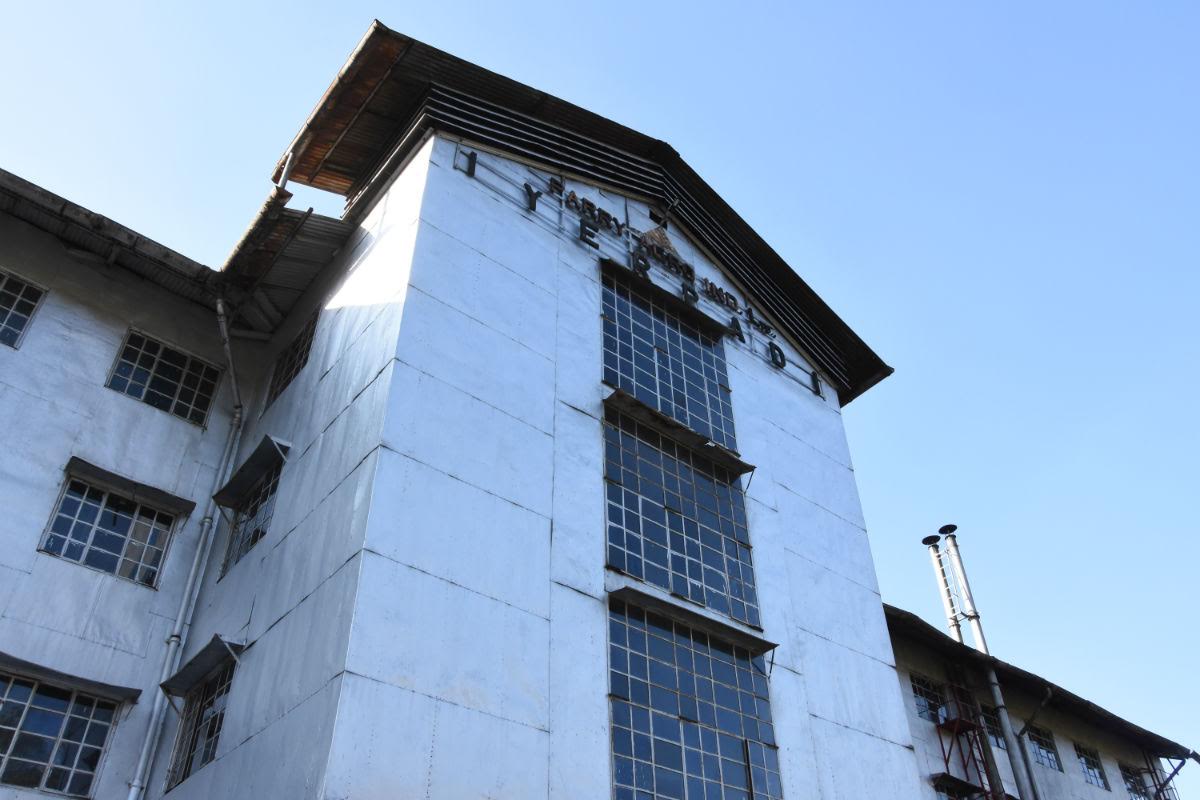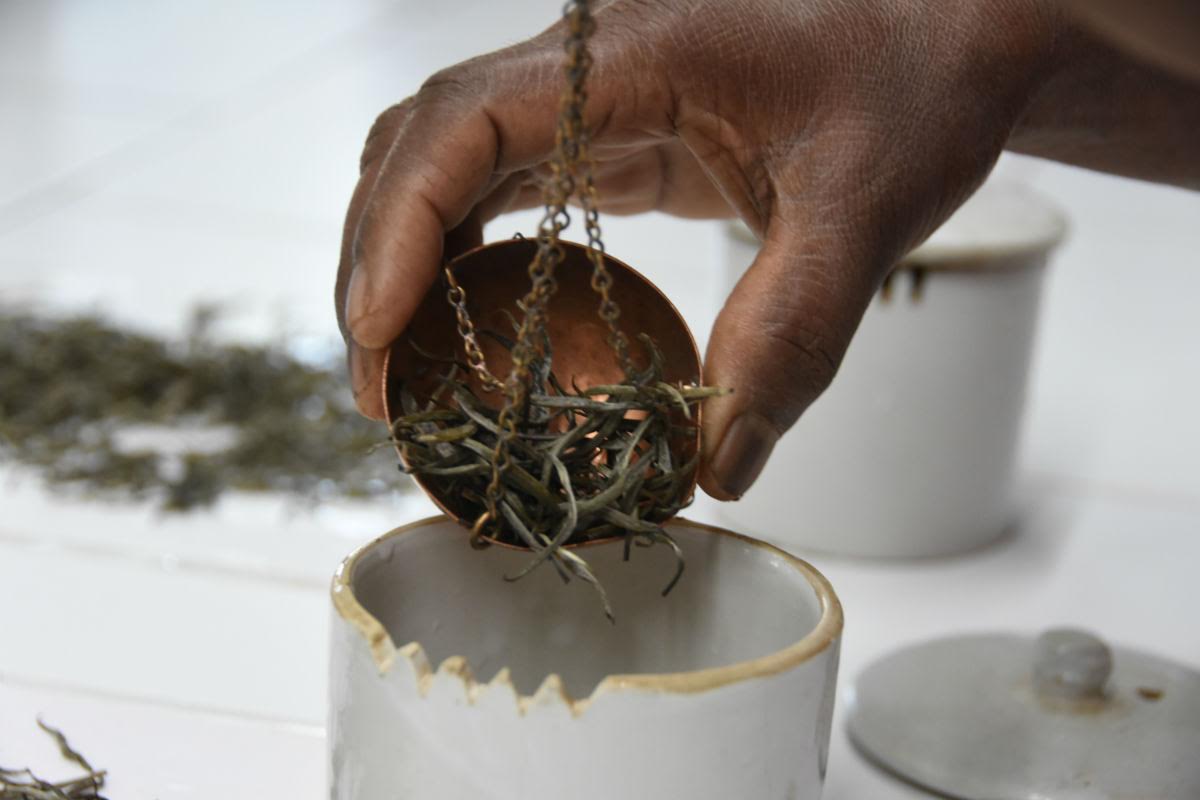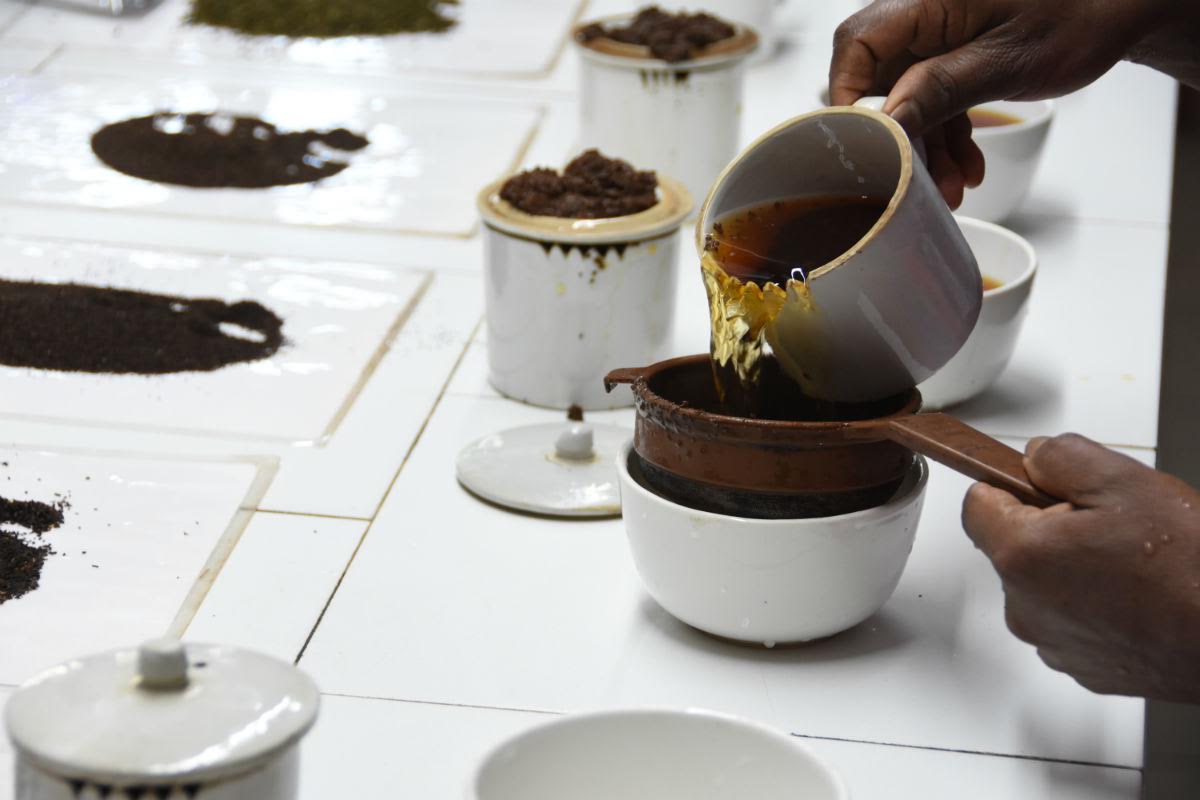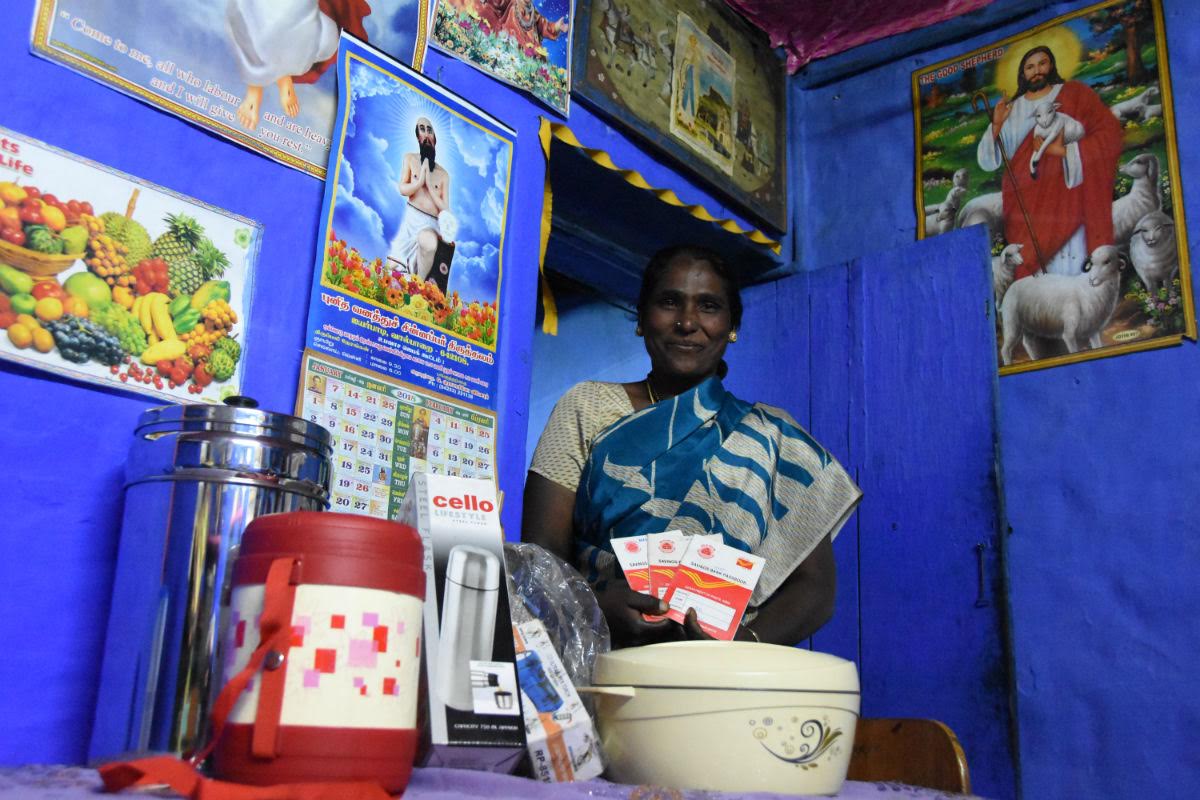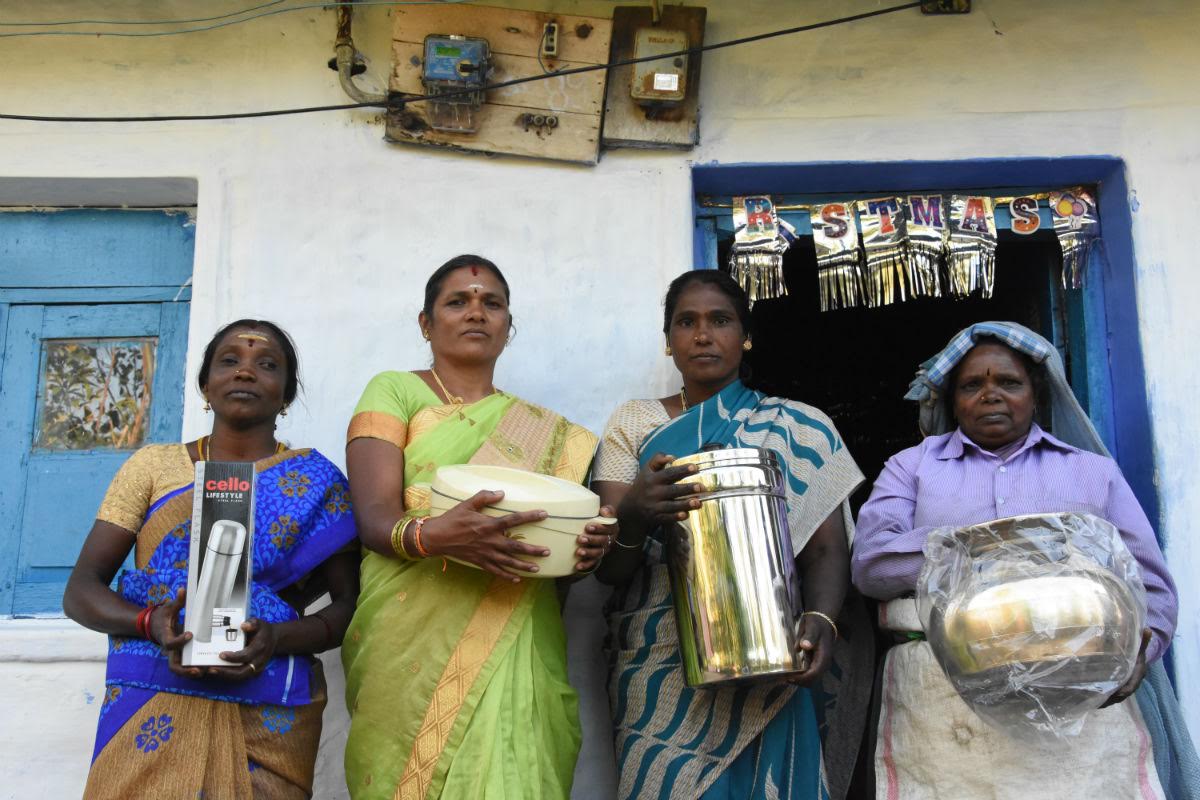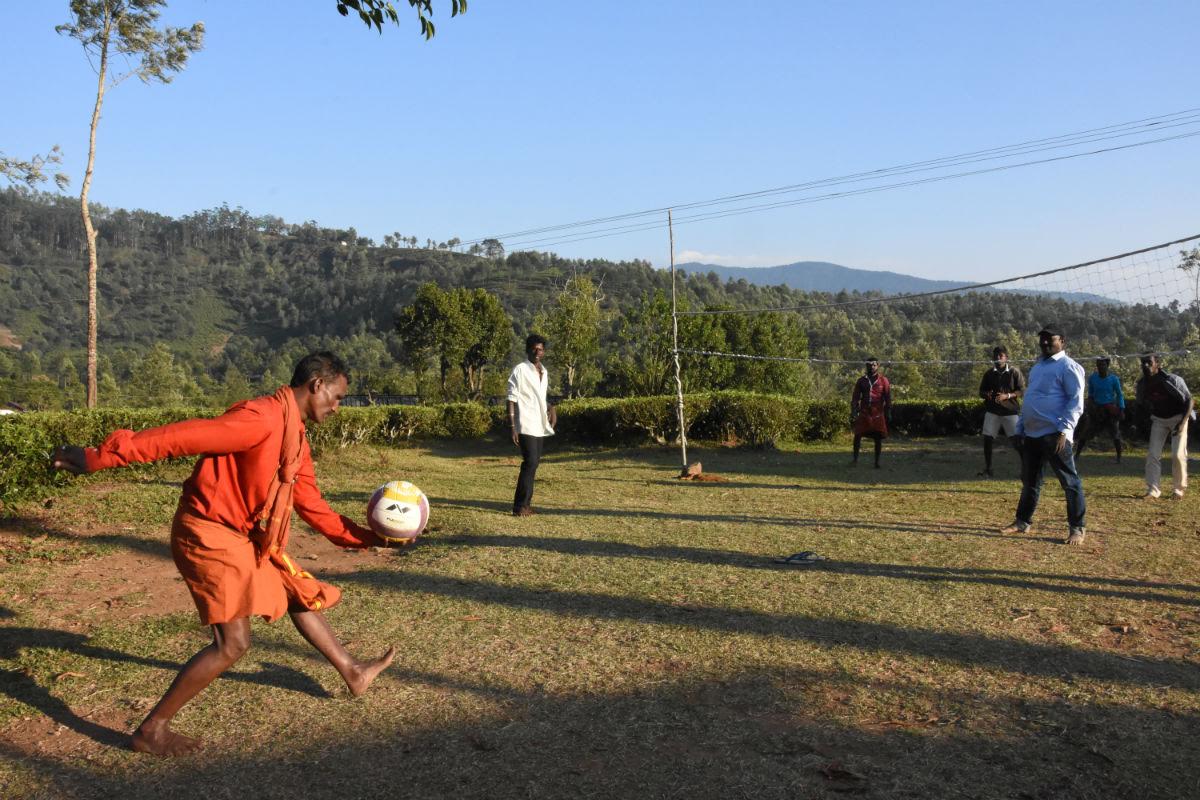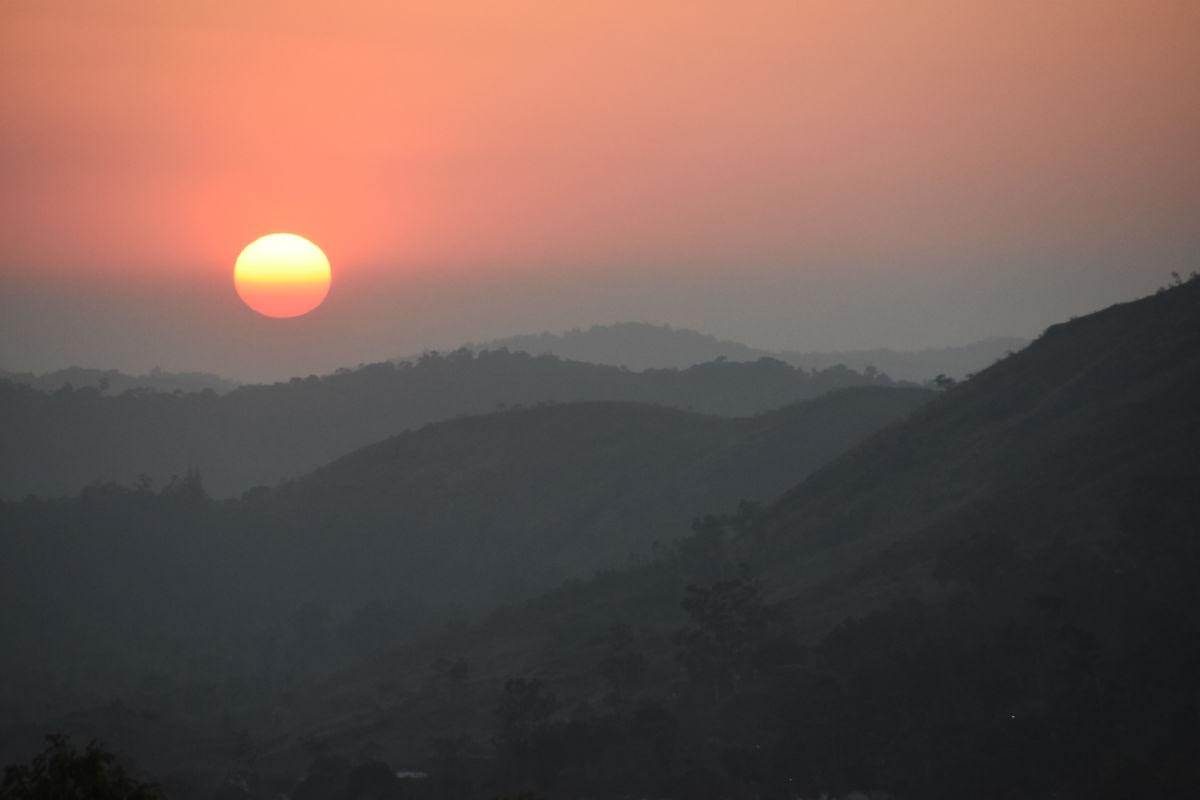About Tea
The Anamalai mountains rise steeply from the dusty, sunbaked plains of Tamil Nadu. A single, well maintained road winds in 40 hairpin bends to an elevation of nearly 4000ft and into the heart of the Anamalai range. Mile stones keep count of the bends, and as you enter the Tiger Reserve billboards inform the traveller whom else he might encounter. Elephants have right of way – which is stating the obvious. Black faced monkeys keep watch from the low walls securing the hairpin bends and a Tahr with huge, undulated horns, a relative of mountain goats, brings everything to a temporary standstill until he decides to leave his resting place in the middle of the road.
The dense rain forest on either side stands tall, occasionally interrupted by tea gardens. With their neat, even ‘plucking tables’ the tea bushes cover the slopes of the hills like a lush, green velvety cloths, in between the graceful silhouettes of shade trees.
At marker 32/40 of the 32 of 40 hairpin curves the road to the Iyerpadi Tea Estate branches off. It is one of only 27 tea gardens in the Anamalai mountains. Since the whole range became a Wildlife Sanctuary and tiger reserve in the 1970s, development was halted, no new houses can be build, the tea estates can’t expand. And wild animals have the right to roam: villagers and tea garden workers are reluctant to leave their homes after dusk because leopards are on the prowl, in search for sugar baby elephants regularly kick in kitchen doors, and if they get stuck mum has to take down the wall to free them, and bison show up in the tea estates for breakfast.
To watch the sun set over the Anamalai mountains from the driveway of the director’s bungalow in Iyerpadi is a serenely beautiful experience. The tea estate and the valley stretched out before you, no sound but that of birds, cicadas and other critters, a gentle breeze whisking away the heat of the day while the sun disappears behind the mountains and night sets in.
The mornings are cool, but for the days of endless rain during the monsoon, it’s the mist rolling down from the mountains that brings moisture. The pluckers are out early, too. Two sections of Iyerpadi, almost 400ha, are managed organically. No chemical pesticides, herbicides or fertiliser are allowed. The research team has developed bio pesticides and foliar sprays that strengthen the immune system of the tea bushes. Vermi compost and mulching improve soil fertility. The freshly plucked tea leaves are transported to the Iyerpadi tea factory where they will be processed. While for black tea the leaves are withered, rolled and then fermented, the leaves for green tea are steamed, cooled and then rolled. Iyerpadi green tea has a lovely, gentle flavour and unique aroma.
Green and black organic tea from Iyerpadi is Fairtrade certified. For every kg of tea sold a Fairtrade premium is paid. The pluckers and tea workers decide themselves for which projects the Fairtrade premium will be used. In Iyerpadi the election of the ‘joint body’, the group of tea workers who take the final decision and work with the management to oversee the implementation, is a big deal: You have to have the trust of your colleagues, you need to be open to suggestions, listen to grievances and be transparent about your work in the committee. In a good year the ‘joint body’ has 50,000 Euros to finance long term projects like debt and medical assistance schemes and student grants and ‘one time only’ projects like a torch, a water filter or a thermos container for each family.


